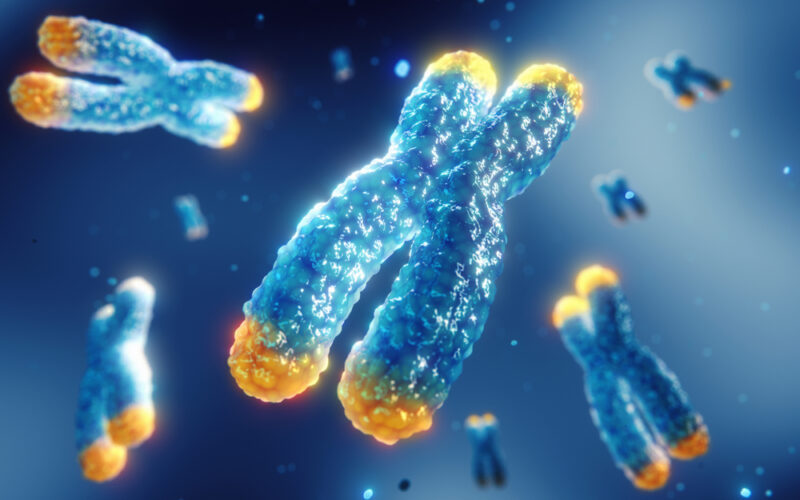In the quest for extended healthspan and lifespan, rapamycin has emerged as a promising anti-aging medication. But how exactly does rapamycin work to potentially slow down the aging process? Let’s dive into the science behind rapamycin’s mechanism of action and its potential effects on longevity.
Key takeaways
- Rapamycin inhibits the mTOR pathway, which plays a crucial role in cellular aging
- It promotes autophagy, a cellular “cleaning” process that removes damaged components
- Rapamycin may help clear out senescent cells that contribute to aging
- While promising, rapamycin’s use as an anti-aging medication is still being researched
Rapamycin mechanism of action in simple words
At its core, rapamycin works by targeting a specific cellular pathway known as mTOR (mammalian target of rapamycin). Think of mTOR as a master switch that controls various cellular processes related to growth, metabolism, and aging.
When we’re young, having active mTOR is beneficial as it promotes growth and development. However, as we age, constantly active mTOR can contribute to cellular wear and tear, ultimately accelerating the aging process.
Rapamycin acts like a dimmer switch for mTOR, turning down its activity. By doing so, it triggers a cascade of cellular changes that are associated with increased longevity:
- It slows down cellular metabolism, potentially reducing the accumulation of cellular damage over time.
- It promotes cellular repair mechanisms, helping cells stay healthier for longer.
- It may enhance the body’s ability to deal with stress at a cellular level.
Why does Rapamycin create an anti-aging effect?
Rapamycin’s anti-aging effects stem from several key mechanisms:
- Clearing out senescent cells: As we age, our bodies accumulate “senescent” cells – old, damaged cells that no longer divide but don’t die off either. These cells can release harmful compounds that contribute to inflammation and aging. Rapamycin may help clear out these problematic cells, potentially slowing down the aging process.
- Promoting autophagy: Autophagy is like a cellular recycling program. It helps clean up damaged cellular components, recycling them for energy or new cell parts. Rapamycin boosts autophagy, which may help keep cells functioning optimally for longer.
- Improving metabolic health: Rapamycin can enhance insulin sensitivity, potentially delaying age-related metabolic decline. This could help protect against conditions like type 2 diabetes, which become more common as we age.
By influencing these processes, rapamycin may help extend both lifespan (how long we live) and healthspan (how long we remain healthy).
Rapamycin safety for anti-aging and longevity
While rapamycin shows promise as an anti-aging medication, it’s important to understand potential side effects related to its mechanism of action:
- Immunosuppression: Rapamycin was originally developed as an immunosuppressant. At high doses, it may increase susceptibility to infections.
- Metabolic changes: Some users may experience changes in blood sugar levels or lipid profiles.
- Mouth sores: A common side effect, especially at higher doses.
- Delayed wound healing: Due to its effects on cell division, rapamycin may slow wound healing.
It’s crucial to note that most studies on rapamycin’s anti-aging effects use lower doses than those used for immunosuppression. At these lower doses, side effects are generally milder and less common. However, long-term effects of rapamycin use for anti-aging are still being studied.
Rapamycin perspectives as anti-aging medication
Rapamycin’s potential as an anti-aging medication has generated significant excitement in the scientific community. While it’s not currently FDA-approved specifically for anti-aging purposes, ongoing research continues to explore its potential benefits.
The excitement around rapamycin stems from several factors:
- Consistent results across species: From yeast to mice to dogs, rapamycin has shown life-extending effects in multiple species.
- Multifaceted effects: Unlike treatments that target single aspects of aging, rapamycin influences multiple pathways involved in the aging process.
- Existing safety data: As rapamycin has been used medically for years (for other purposes), we have a good understanding of its safety profile.
However, it’s important to note that while promising, more research is needed to fully understand rapamycin’s long-term effects and optimal dosing for anti-aging in humans.
Get Rapamycin for anti-aging and longevity with Heally
Are you interested in exploring rapamycin as part of your anti-aging strategy? Heally can connect you with healthcare providers knowledgeable about rapamycin’s potential for longevity and anti-aging.
Our platform allows you to consult with experienced doctors who can assess your individual needs and determine if rapamycin might be right for you. They can guide you on proper rapamycin dose for longevity and help monitor your progress.
Take the first step towards a potentially longer, healthier life. Book an appointment on Heally today to learn more about rapamycin and other anti-aging strategies.
Conclusion
Rapamycin’s mechanism of action, centered around inhibiting the mTOR pathway, offers intriguing possibilities for anti-aging and longevity. By promoting cellular repair, clearing out damaged cells, and improving metabolic health, rapamycin may help slow down the aging process at a fundamental level.
While more research is needed to fully understand its long-term effects in humans, rapamycin represents an exciting frontier in anti-aging medicine. As with any medical treatment, it’s crucial to consult with a healthcare professional to determine if rapamycin is appropriate for your individual health needs and goals.
Sources
- Johnson, S. C., Rabinovitch, P. S., & Kaeberlein, M. (2013). mTOR is a key modulator of ageing and age-related disease. Nature, 493(7432), 338-345
- Blagosklonny, M. V. (2019). Rapamycin for longevity: opinion article. Aging (Albany NY), 11(19), 8048
- Blagosklonny, M. V. (2021). The goal of geroscience is life extension. Oncotarget, 12(3), 131
- Selective Clearance of Senescent Cells by Rapamycin Alleviates SASP and Osteoarthritis of Aging. (2020). Nat Commun, 11(1), 1507
- Selvarani, R., Mohammed, S., & Richardson, A. (2021). Effect of rapamycin on aging and age-related diseases—past and future. Geroscience, 43(3), 1135-1158

